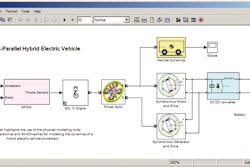Exxon Mobil Corporation and Synthetic Genomics Inc. (SGI) announced the opening of a greenhouse facility enabling the next level of research and testing in their algae biofuels program.
The new facility, opened at a ceremony at SGI headquarters in La Jolla, CA, moves the project from a laboratory setting to an environment that better reflects real-world conditions for algae production. SGI and ExxonMobil researchers are using the facility to test whether large-scale quantities of affordable fuel can be produced from algae.
“This is an important day in the early stages of our development program as we test the hypothesis that algae biofuels could become commercially viable and make a meaningful contribution to meeting future energy demand,” says Dr. Emil Jacobs, vice president of research and development for ExxonMobil.
In the greenhouse facility, researchers from ExxonMobil and SGI will examine different growth systems for algae, such as open ponds and closed photobioreactors. They will evaluate various algae, including both natural and engineered strains, in these different growth systems under a wide range of conditions, including varying temperatures, light levels and nutrient concentrations. They will also conduct research into other aspects of the algae fuel production process, including harvesting and bio-oil recovery operations.
“The greenhouse is the next important step in our alliance as we comprehensively explore algae as a source of renewable biofuels. The team has already made great strides in evaluating various strains and growth conditions for algae and we are eager to continue and expand this important research as we plan for the next stages of scale up,” says J. Craig Venter, Ph.D., founder and CEO for SGI.
Since ExxonMobil and SGI announced the algae biofuel program last July, researchers have made substantial progress, including:
- Isolating and/or engineering a large number of candidate algal strains and developing growth conditions under which these strains could be made more productive;
- Identifying and testing some of the preferred design characteristics of the different production systems; and
- Initiating life cycle and sustainability studies to assess the impact of each step in the process on greenhouse gas emissions, land use and water use.
The next major milestone in the program, expected in mid-2011, is the opening of an outdoor test facility.
If research and development milestones are successfully met, ExxonMobil expects to spend more than $600 million on the algae biofuels program over the next decade, $300 million of which will be allocated to SGI.



















